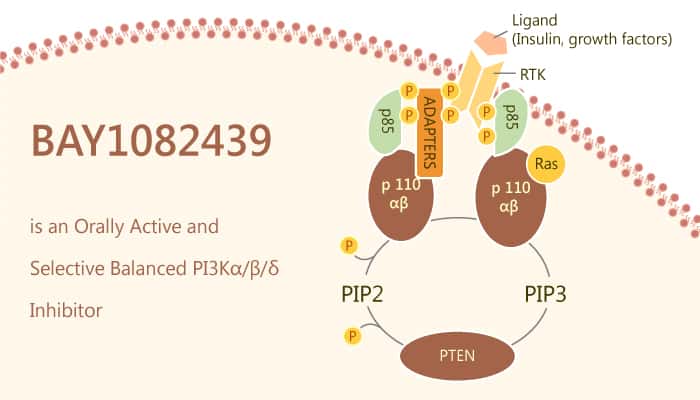Prostate cancer is among the most common malignancy in males. Among the various PI3K isoforms, PTEN-loss-induced prostate cancer in the genetically engineered Pten conditional knockout mouse model predominantly activates the PI3Kβ subunit. However, selective inhibition of PI3Kβ shows no significant anti-tumor efficacy in PTEN-null prostate cancer cell lines. It is due to compensatory activation of the PI3Kα isoform. Therefore, simultaneously inhibiting both PI3Kα and PI3Kβ activities may be a promising strategy for the treatment of cancers with PTEN loss or PI3K activation. In addition, not only the PI3Kα- and PI3kβ-isoforms, but also PI3Kδ, involves the epithelial-mesenchymal transition (EMT), a critical process distinguishing indolent from aggressive prostate cancer. In this study, BAY1082439, a selective PI3Kα/β/δ inhibitor (as 3-Methyladenine (3-MA)), is highly effective in vivo in inhibiting Pten-null prostate cancer growth and preventing EMT in the mutant Pten/Kras metastatic model.

BAY1082439 is an orally bioavailable, selective PI3Kα/β/δ inhibitor. It also inhibits mutated forms of PIK3CA. BAY1082439 is more effective than PI3Kα- and/or PI3Kβ−selective inhibitors in blocking PTEN-null prostate cancer cells growing in vitro. Moreover, BAY1082439 is effective in preventing Pten-null prostate cancer progression in vivo. It also effectively inhibits the PI3Kδ isoform which is up-regulated during the EMT process. BAY1082439 can inhibit castration resistance to tumor growth. Furthermore, BAY1082439 can block B cell infiltration and lymphotoxin-mediated survival signaling from the tumor microenvironment.
In summary, BAY1082439 shows potent activity in tumors with activated PI3K and loss-of-function of PTEN. It targets the major nodes of Pten-null prostate cancer initiation, progression, and castration-resistant growth.
Reference:
Yongkang Zou, et al. Mol Cancer Ther. 2018 Oct;17(10):2091-2099.